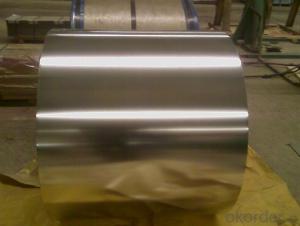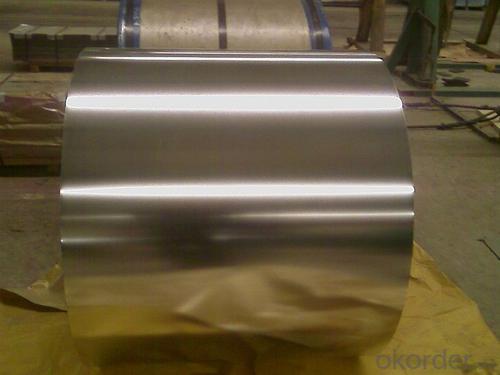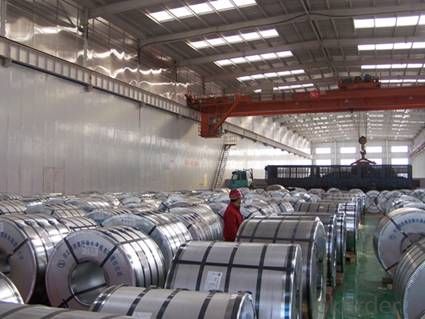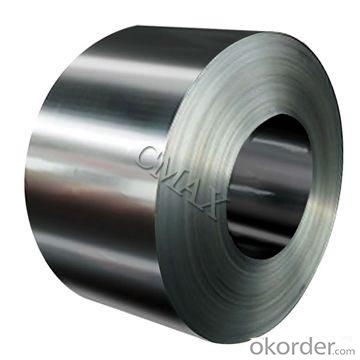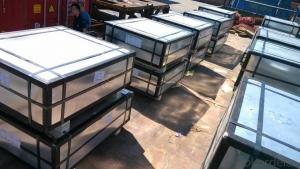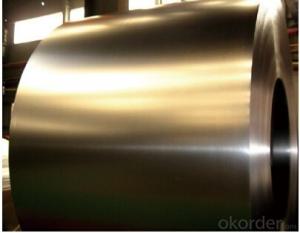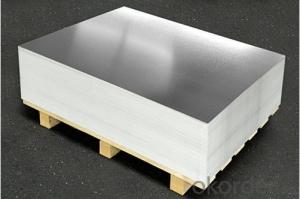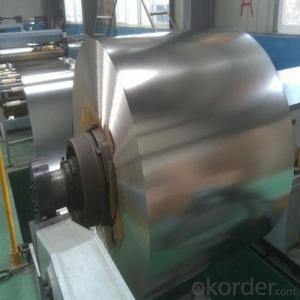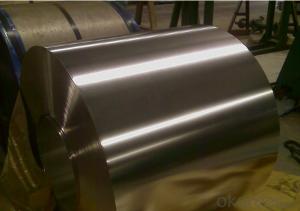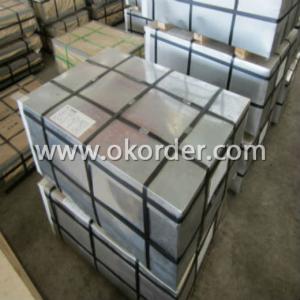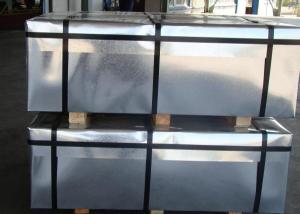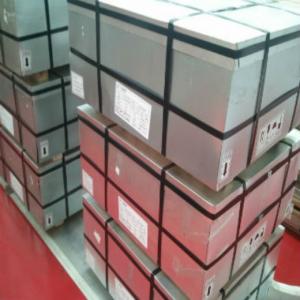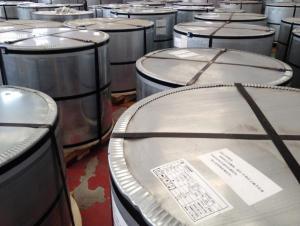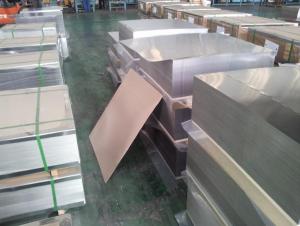MR/SPCC, Electrical Tinplate for Industrial Usage
- Loading Port:
- China main port
- Payment Terms:
- TT or LC
- Min Order Qty:
- 20 m.t.
- Supply Capability:
- 50000 m.t./month
OKorder Service Pledge
OKorder Financial Service
You Might Also Like
Specification
1.Tinplate production Process
cold rolling mill---degreasing production line---tension leveler---batch annealing furnaces/continuous annealing line---tin coating line---cutting line---stock area
2. Specification
standard: GB/T2520
Material: MR /SPCC
Thickness available: 0.16-0.50MM
Width available: 600~1050MM
Temper grade: T1 – DR8
Tin coating: ordinary 1.1g/1.1g~8.4g/8.4g/m2
Package: sea worthy export package.
Applications: Tinplate for chemicals & paint cans, industrial cans, food cans
3. Our factory photo:
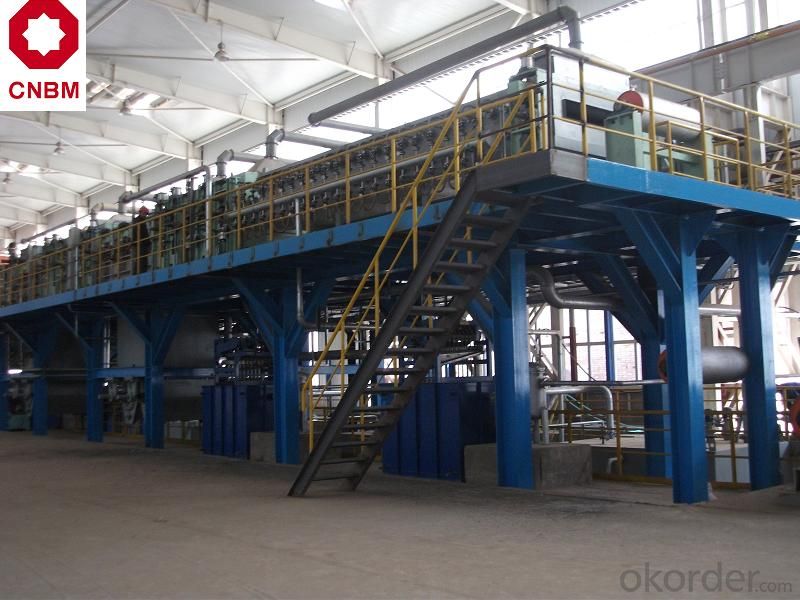
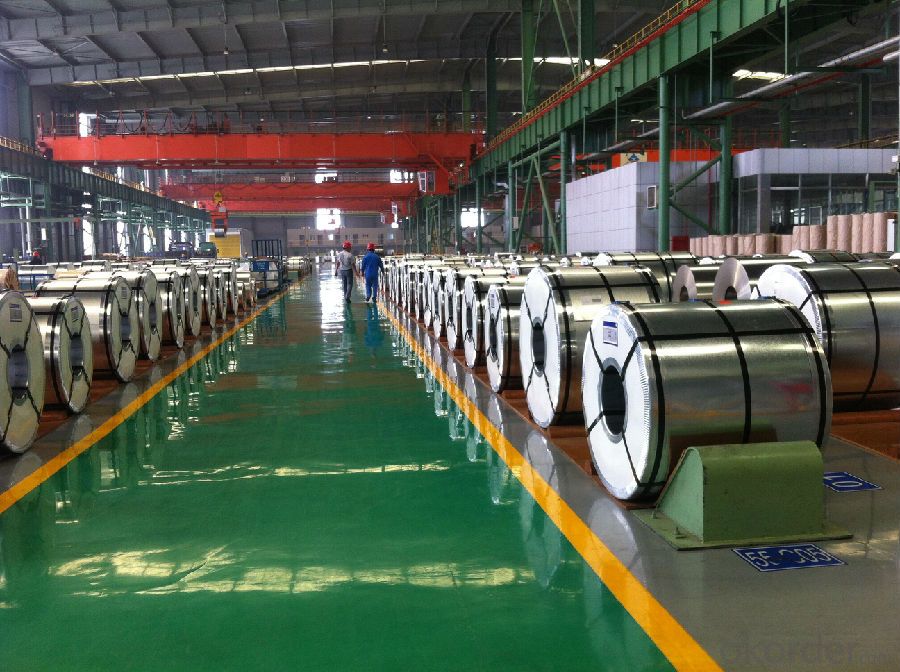
4. FAQ
a. What’s the price difference between SPCC & MR?
Our MR is about usd 15~20/mt higher than SPCC; b. What’s the difference between SPCC & MR
They have difference element content, MR is better than SPCC in anti-rust and deep drawing.
Steel | C | Si | Mn | P | S | Cu | Others |
MR | ≤0.09 | ≤0.03 | ≤0.35 | ≤0.02 | ≤0.025 | ≤0.1 | ≤0.35 |
SPCC | ≤0.12 | ≤0.5 | ≤0.035 | ≤0.025 |
c. What production standards you accept?
We could accept production standards upon our customer request, such as JISG 3303, DIN EN10202, GB/T2520 etc. Our tinplate could meet these standards.
d. If we want to place order, is there any requirement about the booking time?
We need to purchase raw material in advance. Around date 20 per month our production plan will be finalized. So it’s better if customer could place order before date 20 per month, otherwise the delivery time will delay one month.
- Q: What are the main challenges in tinplate transportation?
- The main challenges in tinplate transportation include ensuring proper packaging and securing of the tinplates to prevent damage during transit, managing the weight and volume limitations imposed by transportation regulations, coordinating logistics and transportation routes to minimize delivery times and costs, and addressing potential issues related to customs and import/export regulations for international shipments. Additionally, maintaining product quality and preventing contamination or corrosion during transportation are also important challenges to overcome.
- Q: What are the main applications of tinplate in the paint industry?
- Tinplate is commonly used in the paint industry for packaging purposes. It is primarily used for manufacturing paint cans, which provide a durable and protective container for storing paint products. Tinplate cans also offer excellent resistance to corrosion and airtight sealing, ensuring the longevity and quality of the paint. Additionally, tinplate cans are easy to handle, stack, and transport, making them a convenient choice for the paint industry.
- Q: How does tinplate perform in high-temperature applications?
- Tinplate generally performs well in high-temperature applications due to its high melting point and excellent heat resistance properties. It can withstand temperatures up to 250 degrees Celsius without significant deformation or loss of its protective tin coating. However, at temperatures above this range, tinplate may start to experience oxidative reactions and potential degradation. Additionally, prolonged exposure to high temperatures can cause the tin coating to become brittle and lose its protective properties. Therefore, while tinplate is suitable for many high-temperature applications, it is important to consider specific temperature limits and potential impacts on its performance.
- Q: What are the different tinplate surface finishes?
- The different tinplate surface finishes include bright, stone, matte, and silver.
- Q: How does tinplate contribute to the overall sustainability of the supply chain?
- Tinplate contributes to the overall sustainability of the supply chain by offering several environmental benefits. Firstly, tinplate is highly recyclable, allowing for the continuous reuse of the material without any loss of quality. This reduces the need for virgin materials and minimizes waste generation. Secondly, tinplate provides excellent protection and preservation properties, extending the shelf life of products and reducing food waste. Additionally, tinplate is lightweight, which helps in optimizing transportation efficiency, reducing fuel consumption, and lowering carbon emissions. Overall, tinplate's recyclability, protective qualities, and lightweight nature make it a sustainable choice that positively impacts the entire supply chain.
- Q: What are the key factors to consider when choosing tinplate for packaging?
- When choosing tinplate for packaging, there are several key factors to consider. These include the quality and durability of the tinplate, its corrosion resistance properties, its compatibility with the packaged product, the desired aesthetic appeal, the cost-effectiveness, and the environmental sustainability of the material. Additionally, factors like the ease of printing, forming, and sealing should also be taken into account to ensure the tinplate meets the specific packaging requirements.
- Q: How is tinplate coated for aerosol cans?
- Tinplate is coated for aerosol cans through a process called electroplating. The tinplate is immersed in an electrolyte solution and an electric current is passed through it, causing tin ions from the solution to be deposited onto the surface of the tinplate. This electroplating process ensures a thin and uniform layer of tin coating, providing corrosion resistance and a shiny appearance to the aerosol cans.
- Q: What are the common testing methods for tinplate?
- Some common testing methods for tinplate include visual inspection, thickness measurement, adhesion testing, corrosion resistance testing, and tensile strength testing.
- Q: What are the advantages of using tinplate for stationery and office supplies?
- One of the advantages of using tinplate for stationery and office supplies is its durability. Tinplate is known for its resistance to corrosion, making it long-lasting and suitable for items that are frequently used or handled. Additionally, tinplate provides a smooth and glossy surface, enhancing the aesthetic appeal of stationery and office supplies. Its malleability allows for intricate designs, making it suitable for customizations and branding. Lastly, tinplate is a sustainable option as it is recyclable, contributing to eco-friendly practices in the stationery and office supply industry.
- Q: How does tinplate perform in terms of light blocking?
- Tinplate performs well in terms of light blocking due to its opaque nature, making it effective in blocking out light and preventing any potential damage or degradation that may be caused by exposure to light.
Send your message to us
MR/SPCC, Electrical Tinplate for Industrial Usage
- Loading Port:
- China main port
- Payment Terms:
- TT or LC
- Min Order Qty:
- 20 m.t.
- Supply Capability:
- 50000 m.t./month
OKorder Service Pledge
OKorder Financial Service
Similar products
Hot products
Hot Searches
Related keywords
